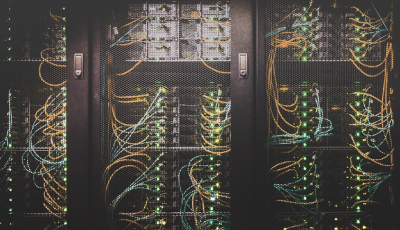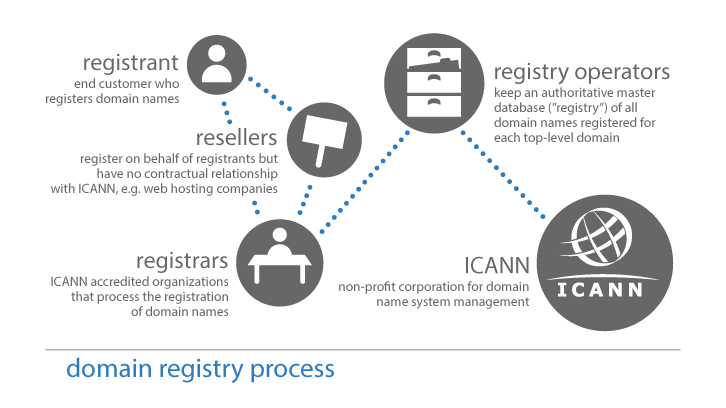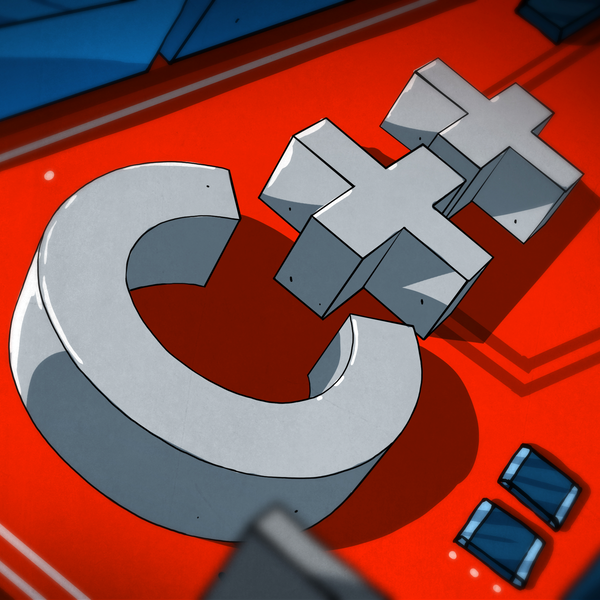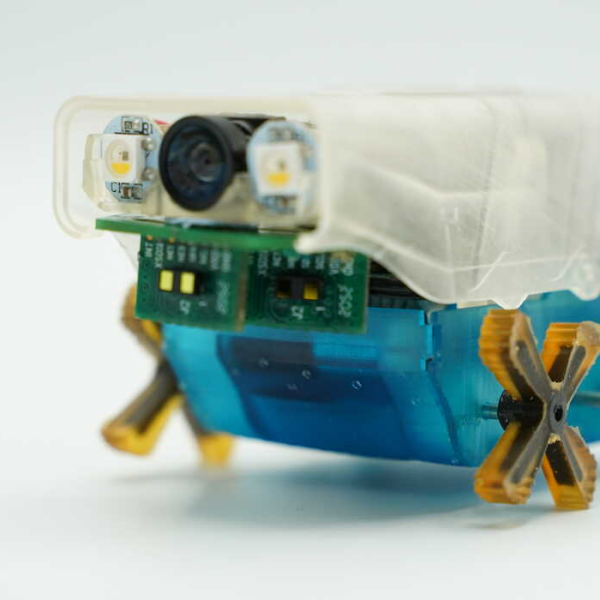Earlier this week, domain name registrar Namecheap sent out an email to all customers advising them of a secret deal that went down between ICANN and Verisign sometime late last year. It has the potential to change the prices of domain names drastically over time, and thus change the makeup of the Internet as we know it.
Domain names aren’t really owned, they’re rented with an option to renew, and the annual rate that you pay depends both on your provider’s markup, but also on a wholesale rate that’s the same for all names in that particular domain. This base price is set by ICANN, a non-profit.
Officially, this deal is a proposed Amendment 3 to the contract in place between Verisign and ICANN that governs the “.com” domain. The proposed amendment would let Verisign increase the wholesale rental price of “.com” domain names by 7% per year for the next four years. Then there will be a two-year breather, followed by another four years of 7% annual hikes. And there is no foreseeable end to this cycle. We think it seems reasonable to assume that the domain name registrars might pass the price gouging on to the consumer, but that really remains to be seen.
The annual wholesale domain name price has been sitting at $7.85 since 2012, and as of this writing, Namecheap is charging $8.88 for a standard “.com” address. If our math is correct, ten years from now, a “.com” domain will cost around $13.50 wholesale and $17.50 retail. This almost-doubling in price will affect both small sites and companies that hold many domain names. And the increase will only get more dramatic with time.
So let’s take a quick look at the business of domain names.

They CANN and They Will
The Internet Corporation for Assigned Names and Numbers (ICANN) formed in 1998 with the intent to coordinate, allocate, and assign domain names and IP addresses, assign protocols, and more. ICANN is also responsible for the thirteen root name servers that make up the Internet, and they’re the reason you type words instead of numbers when you want to visit a website. They officially operate as a not-for-profit, public-benefit corporation.
Verisign was founded in 1995 and got their start issuing SSL certificates. They became an internet superpower when they acquired Network Solutions in 2000 and took over the company’s registry functions. As part of this new deal, Verisign will be able to operate as a domain name registrar, stopping just short of being able to sell “.com” real estate themselves, although they could potentially act as a reseller through another company.
As part of the proposed amendment, Verisign will give ICANN $20 million over the next five years, beginning January 2021. Although it isn’t exactly clear how they’ll spend the money, it’s supposed to be earmarked for continued support of things ICANN were already doing, like mitigating threats to DNS security, governing the root name server system, and policing possible name collisions. But people have questioned ICANN’s transparency and accountability — so far, there doesn’t seem to be a system in place to verify that the funds aren’t misappropriated.

What’s a Web Address Worth?
If domains are too cost-prohibitive, then only the rich can stake a claim in cyberspace, and democracy dies in that regard. Conversely, if land is too cheap, cyber-squatters will snatch up URLs and/or dilute the web with snakeoil sites. Any right answer will need to balance these offsetting effects.
Inflation drives the prices of all other goods up, why not domain names? But is the rate too high? The average inflation rate in the US runs under 3% per year, and hasn’t seen 7% in ages.
What do you think, Hackaday universe? Is this increase schedule cause for alarm, or is it just business as usual?
We think ICANN could have at least notified registrars sooner, but that may have given consumers too much time to complain. This isn’t the first time that ICANN has ignored public comment in recent memory — last summer when there was talk of removing price caps on “.org” domains, many people commented in favor of keeping prices capped on the other legacy TLDs, and ICANN completely ignored them. A few months later, the .org registry was purchased by a private equity firm, and the details are still being worked out. Is ICANN still working for the public good?
In the tradition of begging forgiveness later, and for all the good it’ll do, ICANN has an open comment period until Friday, February 14th. So go tell ’em how you feel, even if it feels like screaming into the void.

















icann’t even
I think… that I wish I’d kept my namecoins
The Handshake Naming System (Handshake.org) just launched and couldn’t have come at a better time.
Suggestion leave spaces between an URL, and any punctuation. I’m responding because the url you provided in not clickable as this should be handshake.org
I think that the state of domains is getting kinda sad.
Top level domains, yeah, I expect a price to match their market value…
But instead it is all price fixing based on trends and popularity; *.ai domains are $80/year for some reason other than ai is a trend?
My .ca domains use to be ~$7.99 a year and they are slowly climbing towards $20 last I checked purely because of the amount of time I have owned them.
There is essentially a near-unlimited human-readable namespace for domains.
If I dont care that my domain is 2k3j4h2.ab3 I should be able to pay pennies for it because it is neither broadly useful or marketable.
If you’re ok with 2k3j4h2.ab3 then why not just stick with 215.125.32.165?
Abstraction
Link shortener site.
with QR codes nobody needs to type URLs. URLs were not designed to be typed in, they are supposed to be copied and pasted. Read an interview with TimBerners-Lee.
There needs to be a human-memorable addressing system, or else you essentially have to google it every time, which is just what they’d like.
Might not have a static ip
Yep. I can remember a stupid domain, or bookmark it, but if the IP changes then its just dead links. :)
then get one, it’s not that hard, esp. for IPv6.
> why not just stick with 215.125.32.165?
Because one server with one IP can serve many hosts. DNS name IP address isn’t a 1 1 relationship.
D’oh, system swallowed some characters. This should be:
DNS name to IP address isn’t a 1 to 1 relationship.
Are they! Where’s the whacking stick – our startup has one and very little money – some sense needs installing in a colleague.
A .ai that is
I have many personal websites each with it’s own domain – several of which I have had for over twenty years. This kind of price hike will mean I’ll have to shed most of them within the next ten years. Not sure what kind of internet benefits from that.
I totally agree with you. I am in the same situation. I have had some domain names for decades, and more and more it is paying money for essentially nothing. You are already recorded as the owner of the domain. The only “work” I see them doing is setting a timer so they can bill you for it every year. I would be in favor for domain names lasting forever and a large fee on selling them to prevent squatters. How would you feel if you had to renew the deed to your house every year or the title to your car? I can understand paying to file the paperwork – once.
And don’t even get me started on verisign, if ever there was a company that essentially sold nothing and made a shitpot of money doing it, they are the poster child. I am somewhat amazed that the USPS never got in deeper with their cert service as a means to stay relevant. They also have the means to verify who you are and where you live across the country.
But you do pay to keep “your” car and house every year.
I have cars and bikes that I have not paid anything for in many years. What I pay for my driver is state registration which is based on weight and offsets some of the wear and tear on the roads caused by my car. The house is a bit more abstracted as I pay taxes and as far as I can tell I get nothing in return for them, but in theory, you should get some civic services in return for the taxes you pay. You only pay for the titles once. The domain name registrars single biggest piece of work is billing you annually. They do very little else as far as effort is involved.
What magical state doesn’t tax motorcycles? That would save me a fortune. Hell, even my Jeep is nearly $50/month to keep registered. Highway robbery, the lot of it.
They don’t tax if they’re not registered and insured. You can have as many you want laying around your property if you never drive them on the road.
Well, isn’t it obvious: Goram Marby wants a $1M salary plus bigger bonus (~200k/yr). He is only making $654k, which is less than his predecessors. I’m sure this will certainly help to impress the board.
If ICANN is making secret-handshake deals with Verisign, it’s time to replace ICANN and their non-profit status.
What is all the anxiety about???
The sky is not the limit because no one is going to charge more than what the market can pay.
“The proposed Amendment 3 retains built-in registrant protection. As the registry operator, Verisign continues to be required to provide at least six months’ notice to registrars of any price increase. This allows registrars, on behalf of their registrant customers, to register or renew .COM domain names during the notice period for up to a 10-year total registration term, at the then-current price, prior to any increase. This allows for the ability to lock-in current wholesale prices for up to 10 years.”
I think you are safe for ten years if you want to lock in a price.
https://www.icann.org/public-comments/com-amendment-3-2020-01-03-en
the implicit assumption in your analysis is that it doesn’t matter because civilization will not survive for another 10 years.
The problem here is what you call – the market.
Sure there are many commercial websites but the true richness of culture on the internet comes from non commercial websites run by average people without any funding.
If you leave it to the market to set pricing then you will have nothing but commercial sites.
There is no “market” if there’s only one player. Verisign have a monopoly on .com domain handling. To be called a market, then another player should be allowed for handling this TLD.
To clarify: this is a monopoly because .com and .org (etc) domains are not interchangeable. Businesses are supposed to use .com (always), but also, if you already have a domain, changing it to a different TLD is a substantial cost. They have a captive market for existing registrants.
So you are saying they will start charging $1,000 for websites? Why would they do that if the average joe does not want to spend it? In other words, they would lose a lot of business. They would lose money.
Big corporations can, and they’re just waiting for the average joes to release their leases on the addresses to gobble them up.
Hiking the domain prices up is essentially the online equivalent of gentrification.
If they increase the price from $10 to $1000, and 98% of their customers leave, they’ve still doubled their revenue.
Yeah, I’m sure the market will start behaving like you lot say it does any day now.
It’s just gonna lead to the internet turning more into the cable television style enterprise that everyone hated. Big players and early winners will push the prices way up. That’s the problem with laissez faire. Without regulation, there’s no market forces to prevent early winners from capturing the system itself and turning it into a not-so-free market that benefits them and keeps out future competition. The invisible hand does nothing about that. Nothing within that closed loop preserves the market the way it was initially set up. Then you get crony corporatism and corruption and such and people complain oh, it’s not a real free market-ignoring the fact that all markets will fundamentally morph into this without some kind of outside control.
Laizzes faire vs. regulation is a false dichotomy. Laizzes faire means literally no rules, while regulation basically means “make up rules as you go”. Both are bad because both are arbitrary. When there’s no rules, everyone does what they want. When there’s regulation, everyone does what the regulators want.
There’s still the middle way where you have rules, which you enforce, but don’t try to actively regulate the market in order to avoid corruption.
You cannot make up all the rules in advance, because someone would find a loophole, and then you want to add a new rule to patch that loophole. That is called regulation.
I wish people could survive on common sense: if people are abusing the system, make a rule to fix it, and if they are not, then don’t.
Maybe the smaller sites will move to tor onion services?
https://en.wikipedia.org/wiki/List_of_Tor_onion_services
namecoin is not looking like a bad idea.
ICANN can prices themselves out of existence.
They own the current DNS root servers, but there is nothing at all preventing anyone from creating an independent unrelated domain name system.
Then we can have some snappy new TLDs like .icannsux .blowmevsign
I will take 500 of each please
If all the “interesting” domain names are already taken and you have to get something like asdf1234.com as your domain then what is the point of DNS? Why not just use IP addresses in your URLs and don’t even bother with DNS.
I would also point out that if you use QR codes to advertise your web site then you can even use IPv6 addresses in the URLs and you won’t be forcing anyone to type them in.
The problem with doing that is if something happens down the road such as switching hosts.
Businesses change their physical addresses all the time. They print up new promotional materials with the new address and move on. It’s the same here.
That’s a lot of hassle to avoid the cost of a McD’s meal.
Let’s say tomorrow hackaday changes to 4hr3453fcrjcs.645d because “hackaday.com” is too expensive. Would you find it any more? What if they only gave a week’s notice, but you didn’t visit for a week? You’d have to ask someone.
IP addresses are even worse because they can change regularly and without warning. Not to mention the problem of load balancing.
The reason is one of cost, when you go to a hosting provider the very cheapest option is for them to host literally thousands of websites on one IP address, websites that are hosted by a name-based virtual hosting system. All web browsers (HTTP/1.1 compliant) issue requests with an additional Host header field, after it has created an initial connection using the three way TCP handshake with the IP address.
So using names can make things cheaper, by using less resources.
This is a stupid hack that is not necessary with IPv6.
You’d be surprised and also depressed to know of the many things still not supporting ipv6
Much of the voes of ipv4 is also thanks to IoT gobbling up IP addresses.
IPv6 is also just kicking the can down the road. The number of routes at any level of the network depends on the processing power to handle the routing tables, so adding new addresses just makes the network branches longer, and since the IP addressing system doesn’t deal well with multi-homing and alternate routes, the average latency of the network between two random points keeps on growing. The internet becomes segregated into islands of connectivity.
It’s a deliberate feature designed to turn the internet into cable TV.
ICANN is non-profit like the sun is dark.
The opposite, ICANN is a typical non profit.
Seems that tor onion services just waste internet bandwidth by bouncing messages around to make them anonymous. Definitely not ideal and aids the crooks.
If there is nothing stopping anyone setting up a DNS then why hasn’t this been done already for new .xxxx ? Presume it’s because it can’t.
Seems ICANN is no longer a non-profit organisation and certainly not operating in the internet’s best interest. It’s all about scamming big salaries for it’s bosses!
Just like the many charities – Movember collects around $100M annually but only 60% actually gets passed on to it’s supporting charities and yet they pretty much only collect the money (see their published reports for proof).
60% passthrough is not stellar. The norm is around 75%.
But it’s surprising how even the best charities need overhead for operations, etc. The US gov’t has an employee donation plan, and they list the margins for every charity that’s registered. I wonder if this is made public anywhere? It’s a great resource.
Charity navigator does something like this.
The charities work like multi-level scams. Collectors have a pass-through of 75%, and the charities they work for have a pass-through of 75%, and the companies the charities contract have a pass-through of 75%… and then the sub-contractors… etc. until the real money ending up with the target of the charity falls to somewhere around 10-20% of what was actually collected.
We really need an alternative to the centralized and seemingly rather corrupt ICANN.
nobody is stopping you from setting up your own DNS server and advertising it
You realise that replacing ICANN is harder than that, right?
There are a lot solution most perspective is Wireless Mesh Networks:
https://en.wikipedia.org/wiki/List_of_wireless_community_networks_by_region
So basically replace internet with mesh networks.
But it require affordable FSO(Free-space optical communication) or we can just use long range Wi-Fi with low frequency such as modern 802.11af/ah/ax with directional antennas.
Second solution is just use Alternative DNS root server but they’re not fully solve problem with centralization.
https://en.wikipedia.org/wiki/Alternative_DNS_root
I have recently filed and won a bunch of UDRP cases against typosquatters for a domain with very long name. For those unaware, this is how you dispute the rights to the domain names created for impersonation of the original. The process isn’t cheap and takes about a month, costing in excess of $1K per domain name. Now that the owner of the original domain name took possession of the long list of .coms, they will be subjected to the annual cost increase for useless domain names.
Not a fan of ICANN at the moment.
I’m seeing reasoning here that makes me worry about things like this actually happening…
https://www.youtube.com/watch?v=HWc3WY3fuZU
I’m pretty sure it did happen, in Iowa.
Only irrevocably democratic non profits work, if there is a way for a board to turn a non profit into a morally corrupt self enrichment scheme it eventually will.
ICANN was a horrible mistake.
There should be limits for squatters. “Hackaday.com” is an active site. The renewal price should be fixed. If someone is sitting on hackaweek.com after a year of squatting, then significantly increase the renewal price.
The thing is it takes human intervention to tell if a domain is parked or not, and what do you consider parked. A deceased friend of mine has a web site. It has had only one update since his passing, and that was from his widow announcing his passing. Is that site parked because it has no new content? I think it would be wiser to make ownership transfers much more expensive. You can squat all you want, no one need check to see if it is parked or not, but if you try and sell it, than the big bucks come in. I suspect that would discourage squatting because the the buyer would want the transfer fees to come out of the sellers piece of the pie.
When people start milking things, then typically the customers go elsewhere.
Time for the community to rethink how they want this to work.
Time to create DNS2 – a distributed non centralized IP to name service, that is not the “property” of big corpa methinks.
I Actually had name gouging happen to me… the domain name of my name was expiring.. i waited through the whole expiry period so I could get it.. and the day it expired… one of those “registries” (hugedomains). swooped in, in SECONDS and took it and has been squatting it since for no less than $500.. All this “premium domain” malarkey. I remember when it was enforced that businesses got .com, non profit .org and .net was for network providers related.. (not some of the stupid crap it’s used for now). Someone nudge that reset button on the interwebs please.
I wonder how this will affect *.ampr.org? I have two assignments to that,as it’s run by volunteers it cost nothing. Whe where your in group, where speaker, says privatization is good, sick your hand hi ind give them the bird. Governments of merchants, are always about facilitating the hoarding wealth by the oligarchs.